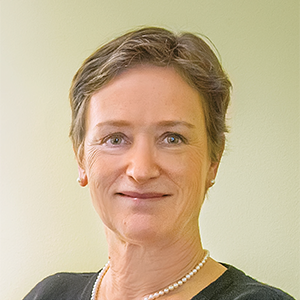Frances Houle
Chemist Senior Scientist
Deputy Director, Liquid Sunlight Alliance

Phone: (510) 604-8339
FAHoule@lbl.gov
https://houleresearchlab.lbl.gov
https://liquidsunlightalliance.org
Divisions
Chemical Sciences
Secondary Affiliation:
Molecular Biophysics and Integrated Bioimaging
- Bioenergetics
Biography
Frances Houle is Deputy Director of the Liquid Sunlight Alliance, Deputy Director for Science and Research Integration of the Joint Center for Artificial Photosynthesis, and Senior Scientist in the Chemical Sciences and Molecular Biophysics and Integrated Bioimaging Divisions at Lawrence Berkeley National Laboratory. She received the BA from the University of California at Irvine and the PhD from the California Institute of Technology, both in chemistry. Prior to her current appointments she was a postdoctoral fellow at LBNL and the UC Berkeley Chemistry Department, Research Staff Member in the IBM Research Division in San Jose, California, Manager of Materials Development at InVisage Technologies, a startup company making nanoparticle-based image sensors that is now part of Apple Corporation, and Director of Strategic Initiatives in the Chemical Sciences Division at LBNL. She has received numerous awards including the 2009 American Vacuum Society John A. Thornton Memorial Award and Lecture, the 1999 American Institute of Chemical Engineers Northern California Section Research Project of the Year, and the 1998 IBM Environmental Affairs Excellence Award. She is a Fellow of the American Physical Society and Fellow of the AVS, and member of the American Chemical Society and the Materials Research Society. She has been active in professional service, and is currently Director of the Materials Research Society and Chair of the Ethics Committee of the American Physical Society in addition to serving as guest editor, and on conference organization and scientific advisory committees. She has over 150 publications and 28 US patents, and is co-author of the open-access stochastic reaction-diffusion simulation code Kinetiscope.
Research Interests
Houle’s scientific interests are in the areas of coupled reaction-transport processes in solar energy conversion systems and their components, and chemical modification of aerosols, nanoparticle, semiconductor, metal and polymer interfaces, surfaces and films using novel experimental and computational techniques.
Recent Publications
Related News
R&D 100 Awards Are In!
Seven innovative technologies from Berkeley Lab have been honored with a 2022 R&D 100 Award, presented by R&D Magazine. Biosciences Area researchers contributed to two different products that were awarded.
New Technique Gets the Drop On Enzyme Reactions
As part of an international collaboration, researchers at Lawrence Berkeley National Laboratory (Berkeley Lab), the Diamond Light Source synchrotron facility, and Oxford and Bristol Universities in England have developed a novel sample delivery system that expands the limited toolkit for performing dynamic structural biology studies of enzyme catalysis, which have so far mostly been limited to a small number of light-driven enzymes.



